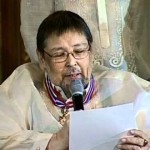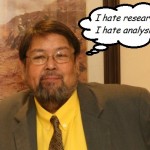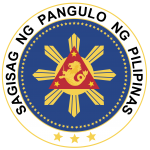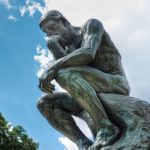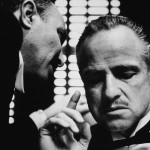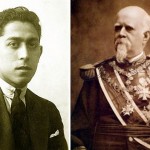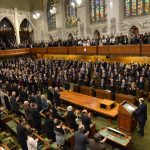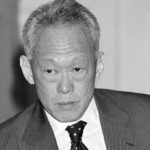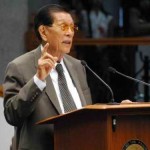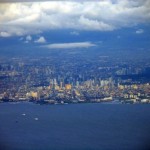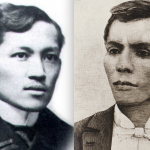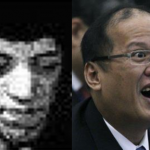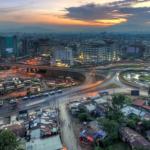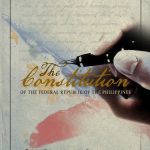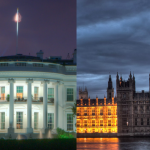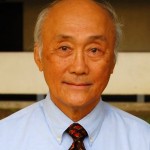Sen. Enrile Solidly Supports Parliamentarism
Current Senate President Juan Ponce Enrile has repeatedly expressed his solid support for Constitutional Reform for a very long time. Back in the days when what later became the 1987 Constitution was up for ratification in a YES versus NO plebiscite, Enrile was among the few who vigorously campaigned against it. Today, we know that he and many of the others – including a majority of military servicemen, both officers and enlisted men at the time who campaigned against the 1987 Constitution – were right all along.
These days, the Senate President has decided – along with House Speaker Sonny Belmonte – to concentrate first on getting the Protectionist Economic Provisions of the extremely flawed and hastily-crafted 1987 Constitution deleted. That’s largely because economic liberalization has become much easier to talk about and sell now that more and more returning OFW’s have become more enlightened and well-informed after seeing how many of their host countries had progressed economically as a result of economic liberalization in allowing the free in-flow of foreign investments.
Political Reforms such as shifting to a Federal paradigm of territorial administration simultaneously with shifting over to a Parliamentary form of government are a lot harder to sell because of the largely technical and process-based analysis needed to fully understand why these shifts are much better than the current flawed Unitary-Presidentialist system in place. But this has not changed the Honorable Senator’s resolve to push for reforming the political system of the Philippines along with fixing the economic provisions.
On August 2, 2005, then Senator Juan Ponce Enrile gave a very informative and highly easy-to-understand Privilege Speech in which he outlined the problems of the current flawed Presidential System in contrast to the obvious advantages of shifting over to a Parliamentary System, which has been proven by a huge majority of international PhD’s in the fields of political science and economics, to be the hands-down superior system.
Alas, far too many Filipinos continue to be misinformed by the Oligarch-controlled media, and these same Filipinos are clouded by an inability to see beyond the here and now. Instead of exerting a little bit of effort to use their intellectual faculties in order to understand what the Parliamentary System is all about, what are its key features, and how it works, too many of our compatriots are sadly too lazy and too fond of mediocrity to read up and do the necessary research. Opposing this proposed solution – for them – appears to be the more convenient path of least resistance – instead of taking the time to do some careful research, fact-finding, and due diligence.
There is no longer an excuse for Filipinos not to know how parliamentary systems work (and thus understand their obvious advantages over presidential systems) because we are now in the age of the Internet. Information is easy to access. Knowledge does not require trips to faraway libraries. All we need these days is a search engine and a little effort in typing out the topic of interest, as well as the effort in actually reading through said articles. It is our hope that Filipinos will take the time to read through the Honorable Senate President’s speech in order to better understand how a Parliamentary System works.
* * *
(The following speech is taken straight from Senate President Juan Ponce Enrile’s official website)
Privilege Speech on Constitutional Reform and the Parliamentary System
(August 2, 2005)
Mr. President,
Ladies and Gentlemen of the Senate:
I rise today not on a matter of personal privilege, but rather on a matter of the highest and most urgent national interest.
THE MESSAGE AND THE MESSENGER
In her State of the Nation Address last July 25th, President Gloria Macapagal Arroyo made a strong and urgent call for charter change. She zeroed in on the shift to a federal parliamentary form of government as her own prescription for the nation, and on a constituent assembly as her suggestion to Congress on the manner of crafting a new constitution.
For one such as this humble representation who has, over the years, actively advocated a serious revision of the 1987 Constitution, the urgency of the President’s call would have been unquestionably a welcome development. It is, however, unfortunate that the call was made at a time of deep political turmoil and division in the land and in the midst of a controversy involving no less than President Arroyo herself. The tragic consequence is that predictably, the essential merits of any proposal for charter change quickly got lost in the thick political air.
OPPOSITION TO CONSTITUTIONAL CHANGE
Mr. President, there are those in our national community — no doubt well-meaning — who keep telling our people that we ought not to distract ourselves with charter change because we have more urgent national problems that must be attended to first. They point to our distressed economy, our increasing national debt, and our huge fiscal deficit, abject poverty, corruption in government, deteriorating peace- and-order situation in the country, and the serious crisis besetting the presidency.
By their own admission, most of the opponents of charter change are not against constitutional revision or reform per se. While declaring their belief that there is certainly a need for it, they hasten to add, “but not now”, for various reasons — the timing is questionable; the motive is suspicious; it is a diversionary tactic; it is designed to provide a “graceful exit” for the incumbent; or there is a hidden agenda not only for the President but for other politicians as well. To sum it all up, the proposal for immediate charter change has been dismissed as an insidious ploy and a political gambit.
Today, if someone so much as whispers an idea to shift to another form of government, a cacophony of voices expressing impassioned, sometimes irrational, dissent will suddenly explode from the elite groups and their cohorts — politicians, religious leaders, academicians, professionals, businessmen, and even ordinary citizens — and just as suddenly, burst into and fill broadcast and print media as well as religious pulpits, corporate boardrooms, classrooms, college campuses, public thoroughfares and city squares, barber shops, sari-sari stores, and even the halls of Congress with animated opinions.
The proponents of change are right away branded, lampooned, and berated in placards or in some newspaper cartoons, columns, editorials and text messages with all sorts of derisive names, and imputed with sinister motives; accused as agents or tools of some political or economic vested interests.
The poor public with no means to verify the truth or untruth of the noisy but less-than-disinterested maneuver is being swayed to support the cause of the elite and its cohorts, without realizing that in doing so it is actually going against its own social class interest.
THE GREAT DEBATE
Mr. President, perhaps the actual convening of a constituent assembly or a constitutional convention to frame a new charter, depending on the collective sense of Congress, must be done only after the resolution of the impeachment case against President Gloria Macapagal Arroyo. I say this because in my belief, this is the only way by which the awesome and monumental task of charting a new path for the nation can be undertaken without being weighed down by a political milieu clouded with dissent, distrust, suspicion, and even skepticism.
Having said that, Mr. President, I dare say that I agree with President Arroyo’s view that we must now begin the great debate on charter change. The process of reflecting on our alternatives in the face of present-day political, social and economic realities, and our collective experience as a nation and as a people should, in fact, be a continuing one. While it is true that political events tend to dictate our attention and priorities, these should not prevent us, especially our leaders, from looking beyond the resolution of our present crisis. Whether or not President Arroyo is impeached or is removed from office, constitutional reform remains an imperative.
BASIC QUESTION
At this point, let me ask this question, Mr. President: Where, how, and when do we really start to address the manifold and current ills of our society?
I posit this question because we can no longer afford to brush aside the immense problems weighing heavily upon our country. Neither can we hide her distressed condition no matter how much we try. As legislators of this nation, it is our bounden duty to face these problems resolutely, and find adequate responses to them in a manner that will relieve the dismal state of our society.
OUR NATIONAL CONDITION
Mr. President, so that my discussion this afternoon may be better appreciated, let me first briefly describe the present condition of the country as I see it.
Our population has grown tremendously over the years, and it continues to grow at the rate of 2.6% annually. It is expected to reach nearly one hundred million at the end of 2010.
On the other hand, our economic growth has not really outdistanced that much our population growth such that our per-capita income has lagged behind and has almost remained static in proportion to our increasing population. Our neighbors in Southeast and Northeast Asia are running well ahead of us. Even Vietnam and Bangladesh are about to overtake and surpass us.
Our national debt has reached P5.2 trillion. It is expected to continue to grow even larger. Our fiscal deficit has risen beyond tolerable limits. Contrary to our expectations, our tax revenues have not expanded to a desired level in spite of our earnest effort to reform our tax system and to improve the efficiency of our tax administration.
The number of jobless people in the country, including those with no adequate income to support themselves and their families, continues to rise. Many of our professionals and skilled workers have gone abroad, and many more are leaving to seek employment elsewhere. This Diaspora of Filipinos — doctors, nurses, medical technologists, dentists, engineers, architects, lawyers, accountants, management executives, teachers, artists, artisans, seamen, caregivers, technicians, and others — poses a serious drain of skilled manpower from our society.
Our public-school system has retrogressed over the years. Our human- resource development has become truly backward compared to those of our neighbors. Only the children of well-to-do families can now afford a fairly good education. The quality of our new professionals leaves much to be desired. Increasingly, we are losing our competitiveness in the markets of the world.
The political stability of the country has deteriorated over the last several years. The cohesion of our people has been badly shattered. A deep fissure of division in our society threatens to break our country apart because of the on-going political instability. Criminal, restive, and anarchic behaviors are evident in many parts of the nation.
Dishonesty and corruption in the public service as well as in the private sector have become prevalent, causing embarrassment to our country and shame to our people all over the world.
Our social environment is in a state of disarray, and many of our physical infrastructures have decayed and are in disrepair.
The quality of our public services has steadily declined and weakened over the years. Yet, the costs of these services to our people have become increasingly higher and burdensome.
OUR CURRENT RESPONSES
Our responses to these grave national ills so far have been largely palliatives, or at best, piecemeal and mild evolutionary reforms. Personal ambitions and vested interests have succeeded in blocking and continue to block structural changes and reforms that are proposed and expected to effectively arrest our growing decadence. Our national effort to introduce substantial adjustments in our political, economic, and social policies and structures is being thwarted by the selfishness, narrow-mindedness, and, oftentimes, groundless and knee-jerk dissent of some leaders of the country who ought to know better.
OMENS OF DANGER
Mr. President, in a span of almost twenty years since February 1986, this nation suffered three dangerous political convulsions that broke the unity of our people. These social convulsions did not happen overnight. They were the culminations and concrete expressions of lingering and pent-up frustrations and resentments of the people. They are omens of a potentially bloody social catharsis that may engulf us — omens which we cannot take lightly anymore. Only the blind and the deaf among us, and those with selfish ambitions or vested interests to protect, cannot or refuse to see or hear the coming danger.
THE PEOPLE WILL ACT
Unless our leaders harness their collective will and show their determination to act decisively, it is not farfetched to imagine that the common people’s abject degradation will push them to the brink, and compel them to take the law by their own hands to liberate themselves from poverty, and to redress what they regard as the criminal neglect of the government to mitigate their distressed and squalid condition.
BEGIN WITH THE CONSTITUTION
And so, I go back to my original question, Mr. President: Where, how, and when do we begin the quest for meaningful and effective solutions to our dismal national circumstance?
I submit, Mr. President, that we must begin no less, and as soon as possible, with the Constitution of the Republic. Let us revisit it, and excise from it and replace those provisions and institutions that hinder our progress or are inimical to our modernization.
Unless we reform our constitution, we will remain a laggard, weak, and poor. We will not achieve a higher economic growth, a better standard of living for our people, and a more stable society. We will be like a gardener who constantly trims the weeds in his garden to fulfill his desire for a better garden, instead of destroying the roots that make the weeds grow constantly; or like a cancer patient who takes vitamins to cure himself, instead of undergoing surgery or chemotherapy to eradicate the malignant cells.
THE CONSTITUTION NOT GOD’S WORK
Mr. President, our present constitution is not an immutable document. It did not come from God. It was the brainchild of human beings — of men and women who, undoubtedly in their time, had their own personal motives, biases, and prejudices.
The people did not elect the framers of the present constitution. President Corazon C. Aquino selected them. I grant their patriotism and their loyalty and dedication to the people. I also recognize their noble intentions and their intellectual competence and experience to draw up the constitution. But they were fallible human beings like us.
POLITICAL PREJUDICE AND THE CONSTITUTION
From what we already know from the experience we have gathered for almost two decades in running the affairs of this nation under the present constitution, it is fair to conclude that those who framed it failed to foresee the pitfalls of their creation. I suspect that when they drafted the constitution, they were greatly influenced by what they regarded as the excesses of the Marcos regime which, at that time, had just been repudiated by the people and consigned to the graveyard of history.
Today, with accumulated lessons to guide us, we can confidently reform and improve our constitution. In my humble view, it will be a gross act of political irresponsibility to ignore the obvious and latent weaknesses of our constitutional system and perpetuate those that brought us to our penury, backwardness, and chaotic condition.
AREAS FOR REVIEW
There are many areas that ought to be revisited in the Constitution. However, this afternoon, I will limit myself only to the imperative and salient ones — the parts that have to do with the principles of political authority and distributive justice. Let me outline them briefly.
First is our form of government. Should we continue with the presidential system, or should we discard it in favor of a parliamentary form of government? If we decide to adopt a parliamentary form of government, what type of parliamentary system should we construct?
Second is the bicameral character of the legislature. Should we maintain our present bicameral Congress? If we do, should we continue to elect senators nationally, or should we elect them regionally?
Third is the term limit on local elective public officials. Should we continue the current limitations, or should we leave the prerogative to the voters to decide how long they want their elective public officials to remain in office?
Fourth is the present multi-party system. Should we continue with it, or should we return to the two-party system under the 1935 Constitution?
Fifth is whether to maintain the present nationalized police service or to revert to the old system. We must assess this carefully in the light of the present condition of law and order in the country.
Sixth is the authority and jurisdiction of the Commission on Appointments. Should we follow the current system, or should we go back to the system under the 1935 Constitution?
Seventh is the Commission on Elections. This institution has been severely damaged. Its performance and integrity have been tarnished and compromised beyond repair. Should we maintain it, or should we discard it, and construct a new system to administer our elections?
Eighth is the Civil Service Commission. Should we dismantle the current civil service, and establish a new one in order to minimize corruption in the bureaucracy? Today, when one enters the civil service, he acquires a permanent tenure in the government agency to which he is first appointed, and he remains in that agency until he retires, unless, in the meantime, he agrees to be reassigned to another government agency.
Ninth is the judicial system. How can we make it more responsive to the demands of speedy, fair, inexpensive, and just resolution of civil and criminal cases?
Tenth are the economic provisions of the Constitution. Should we continue with the current economic nationalism of the constitution, or should we now define the areas of the economy that must be reserved and preserved for our citizens and, at the same time, identify the areas where we will welcome greater foreign involvement and participation?
DISCUSSION LIMITED TO FORM OF GOVERNMENT
Mr. President, I shall not attempt to dwell on all these broad issues because to do so will require more time than what is available this afternoon. I shall, therefore, limit myself to what I consider to be the most urgent one that demands attention, which is the system of government most likely better suited for us, given our historical experience.
EXPERIMENT WITH PARLIAMENTARY SYSTEM
We attempted to replace the presidential system with a parliamentary form when we adopted the 1973 Constitution. But our effort was not successful. The president then, having declared martial law in 1972, and having assumed both executive and legislative powers as a consequence, decided to suspend the implementation of the 1973 Constitution. He continued to act as President and Congress of the country, and as her Prime Minister. This lasted up to 1978.
When the Parliament was elected and constituted in 1978, it was only a parliament in name and form. Although President Marcos was no longer the Prime Minister, he nevertheless exercised executive powers in his capacity as president of the country and, at the same time, continued his legislative powers under Amendment No. 6. Hence, the Parliament was rendered inutile.
The charade ended in 1981, when the 1973 Constitution was finally amended, and the presidential system was again restored formally in the country.
REVERENCE FOR PRESIDENTIAL SYSTEM
Mr. President, it would seem that since the end of the 19th century, we developed wittingly or unwittingly a strong and deep emotional attachment to the presidential system without realizing its pitfalls. Many of our countrymen are steadfast in their belief that it is the only form of government best suited for us. This attitude prevails even among the well informed in our society.
PRESIDENTIAL SYSTEM RETARDS PROGRESS
And yet, if we study our past, Mr. President, a strong case can be made to support a conclusion that the presidential system has not worked well for us. This is more evident if we compare our national circumstance with those of our progressive neighbors in Southeast and Northeast Asia, all of which are, by and large, under the parliamentary system of government.
In terms of economic development, our country has not advanced as much and as fast as the southeastern and northeastern Asian countries did in a far shorter period of time. Their progress and modernity under a parliamentary system were way beyond what we had accomplished in more than a century under the presidential system.
Malaysia, Singapore, South Korea, Taiwan, Vietnam, and the People’s Republic of China are good examples. Shedding their colonial status after World War II, and choosing the parliamentary system for their political structure, those countries moved forward steadily at a faster pace. In our case, we plodded sluggishly during the last century, while our neighbors overtook us rapidly and left us far behind. What was the reason? Their structure of government was evidently more efficient, flexible, resilient, and innovative compared to ours.
CLARO M. RECTO’S CRITICISM
Claro M. Recto, a brilliant former member of this Senate and president of the constitutional convention that drafted the 1935 Constitution, was first to voice his disappointment with the presidential system. He called it “a government of the incompetent by the irresponsible.”
His remark may seem somewhat severe and harsh. Yet, it betrayed his realistic assessment and judgment against the utility and merit of the presidential system.
For Claro M. Recto, the presidential system “can make fools of all the people all the time and make fools of themselves for four years.” This disdain was very likely the result of his experience as a former legislator, jurist, and member of the executive branch. By the way, his reference to “four years” had to do with the term of the president under the 1935 Constitution.
POWER WITHOUT ACCOUNTABILITY
Mr. President, I agree with Claro M. Recto. Like him, I find it bizarre and incongruous that members of the Cabinet — who are mere appointees of the Chief Executive and with no direct mandate from the electorate — wield more powers than the members of Congress, who are elected by, and are direct representatives of the people.
Mr. President, under our presidential system, the members of the Cabinet exercise absolute control and supervision over the government. They spend billions of the people’s money, they enforce all the laws, and they implement all policies that Congress approves, without any say-so from the members of Congress, and without any responsibility to the people. The ones answerable to the people for the public funds being spent and for the laws and policies being implemented are the members of Congress, not the members of the Cabinet whose accountability is only to the president who appointed them.
THE CHOOSING PROCESS
Mr. President, there are other defects of the presidential system that must be examined and brought to light. For instance, there is what is called, the choosing process. This has to do with the fitness of the president to be elected.
Today in our country, Mr. President, more often than not, a demagogue has a better chance of getting elected president than a democrat. The obvious explanation for this anomaly lies in the present method of electing the president. Under our presidential system, the entire national electorate elects the president. Because of this, a vast number of the voters in the country may not really know the personal characters, abilities, and backgrounds of the men and women seeking the office, let alone the needed skills for the presidency.
Therefore, the mediocre or meretricious becomes more acceptable to the electorate than the meritorious. Popularity, rather than ability and character, is the hallmark for choosing and electing a candidate for president of this country.
Given this state of affairs, it is not farfetched to say that in our country, a more popular but incompetent candidate will most likely succeed a popular but equally incompetent president.
Mr. President, this is the emerging reality. We are no longer sure that only the truly qualified will be chosen president of the country. The rising number of voters who tend to develop a fetish for popular candidates whose best qualities qualify them for everything else except public office, has spawned this problem. Even the improvement in the education of our voters has not raised their political maturity and reliability to choose and elect the best and most qualified candidate for president.
MAJORITY WILL
Another drawback of our presidential system, Mr. President, has to do with the number of votes needed to confer legitimacy on the elected president so that he can confidently govern the nation.
Unless the present system is changed, we shall never again see a president of this country elected by a majority of the national electorate. The last time we had a president elected by a majority of the national votes cast was in the snap presidential election of 1986. After Edsa Uno, the winners in all the presidential elections thereafter were determined and decided on the basis of mere plurality of the national votes rendered.
NO RUN-OFF ELECTION
In democratic countries like us, a majority of the national voters is required to elect the president. However, in our case, the framers of the present constitution made the mistake of adopting a multi-party system along with a presidential form of government. This peculiarity of our political structure engendered a multiplicity of presidential candidates during presidential elections.
Because there is no run-off election in our electoral system, necessarily, the winner in a presidential electoral contest has to be reckoned and decided in just one balloting. This made a majority vote hardly possible in electing the president of the country.
Consequently, all our elected presidents since the presidential election of 1992 were “minority presidents”. They did not represent the will of the voting majority. Thus, they did not have the will of the people to legitimately govern the nation. This feature of our present constitution, Mr. President, has gravely undermined our democratic society, the stability of the presidency, and the legitimacy of all administrations since the presidential election of 1992.
COST OF PRESIDENTIAL CAMPAIGN
Mr. President, running for president in this country is a very expensive undertaking. In 1998, the estimated cost for a viable presidential campaign was at least P2 billion. This was to get a job that would pay the candidate, if he were successful, P693,000.00 per annum or P4,158,000.00 for the full term of six years. P2 billion is, by all means, a huge sum of money. It is the salary of the office for 2,886 years!
In 2004, it is very likely that the cost to mount a viable presidential campaign might have more than doubled.
We must reform the present system if we really want to give an equal opportunity to financially incapable but highly deserving persons to seek the presidency of the country. If we do not, and we persist with the present system, chances are rife that only the very rich and affluent — and, perhaps, those sponsored and supported by big business and crime syndicates or crime lords, or both — can successfully run for president, to the detriment of the nation.
Perhaps, the expensive presidential elections we have, Mr. President, is one of the reasons, if not the main reason, for the mounting public perception about the high incidence of corruption in the political totem pole of the land. For no one will be so out of his mind to spend P2 billion for the presidency without getting it back somehow or without feeling obliged to pay his political debts.
PROTECTION OF VOTES
This is the offshoot of our present system where a candidate for president must get a mandate from a national constituency. Because of this requirement, a presidential candidate must provide the wherewithal to protect his votes across the land.
The Commission on Elections cannot be relied upon for that purpose. Although in theory the Commission on Elections is supposed to be a non-partisan and impartial administrator and enforcer of our electoral laws and activities, it is unfortunately a human institution, and its best intentions are not always translated into actual honest decisions and actions during elections.
Under our system before the 1987 Constitution, that was not a serious problem. The two major political parties then were represented in the precinct, municipal, and provincial electoral boards, at the expense of the national government.
When the 1987 Constitution was adopted, the system was changed. The 1987 Constitution banned all political parties and their candidates from having official representations in all electoral boards. The political parties and their candidates were therefore left to fend for themselves.
As a consequence, they had to hire, at their own expense, watchers and lawyers to represent them and to protect their votes in every election board throughout the country. And this entailed a huge amount of money.
PRESIDENTIAL ACCOUNTABILITY
Mr. President, another thing that I wish to stress this afternoon, refers to the accountability of the president while in office. How is the president going to account to the people for his conduct in office during his term? After he takes his oath of office, never will he again go to the people for judgment in an election. We all know that he has a fixed six-year term, and under the 1987 Constitution, he “shall not be eligible for any reelection.”
His accountability to the people while serving his term is of paramount importance because of his vast and awesome powers. He is the head of state, the head of government, the commander-in-chief of the Armed Forces, the top law enforcer of the land, the politico numero uno of the realm, and the Chief Executive Officer of “The Philippines, Inc.”
With that arsenal of presidential powers and prerogatives, plus the enormous financial resources at his disposal, he can, without exaggeration, manipulate events and control the character and flow of information that reaches the public, especially when he is bent on attaining his desired personal goal at all costs, regardless of its benefit or detriment to the national interest.
He can lie through his teeth to the nation. He can use, misuse, or abuse his powers to mislead the people, to intimidate them, especially his adversaries, or to rob them blind. He can pay no heed to the most egregious or undesirable criticisms against him, or he can ignore unwelcome scrutiny of his conduct in office from an irate opposition, or from prying and hostile media, or from an enraged public. He can also play deaf, blind, and dumb to the most outrageous excesses of his relatives, friends, favorites, and subordinates, or worse, he can commit the excesses himself.
With his fixed term of six years, he cannot be divested of his office except if he dies, or if he resigns voluntarily, or if he becomes permanently disabled to discharge his duties and functions, or if he is successfully impeached, or if he is forcibly expelled from the presidency.
In a country like ours where no one resigns voluntarily even for the most despicable and inexcusable transgressions, the people are doomed to suffer for six years when they err in voting for a president who turns out to be incompetent, faithless, deceitful, heartless, corrupt, and morally and legally unfit to occupy the presidency.
IMPEACHMENT OR PEOPLE POWER
What then would be the legal remedy of the people to repair their error if, indeed, they committed one? None, Mr. President! Come to think of it, the president of the Republic is an elected king for six years. He is not really accountable to the people once he has assumed office. The only available legal remedy, Mr. President, will be his removal from office through the impeachment process, which is a duty and function of Congress.
If impeachment is not available for any reason, or if it fails, then the people may directly use force or violence — the ultimo ratio — to oust the unwanted president. This was the case of Edsa Uno and Edsa Dos.
MILITARY INTERVENTION
If the people will not act or fail to act, the armed forces might be tempted by ambition or impelled by necessity to intervene and remove from office a publicly disgraced and unwanted president under their constitutional role as “the protector of the people and the state.”
Mr. President, this provision is, to me, the gravest, the most dangerous, and extremely destructive feature of the 1987 Constitution and our presidential system.
GRIDLOCK AND INEFFICIENCY
Mr. President, there is one more flaw in the presidential system that has hindered our rapid growth and development.
As we all know, our presidential system has three branches that are intended to be coequal and coordinate. Although each branch is invested with separate and distinct powers in order to achieve a system of checks and balances, all three branches are supposed to be integral parts of one government, and work harmoniously together for the common good.
But oftentimes, the three branches work at cross-purposes. They are concerned more for their coequal status rather than for their coordinate role to achieve national goals. This is especially true of the executive and the legislative branches. Between these two branches, there exists a nearly permanent state of political tension that unduly shackles and undermines the attainment of unified action on vital and urgent national problems. This gridlock renders our system extremely inefficient and unproductive.
Mr. Lee Kuan Yew, that brilliant and perceptive former Prime Minister of Singapore, during his visit to Manila in November 1992, spoke before a group of local businessmen and said, “The Philippines has chosen the most difficult political system to operate, with its checks and balances and gridlock between the executive and the legislature. If this were the system chosen by South Korea, Hongkong, Taiwan, or we ourselves, we would not have attained the status that we have now.”
Someone in the audience reminded him that the presidential system was a success in the United States. He answered: “Do not compare the Philippines and the United States. The latter has a limitless expanse of territory, a vast wealth and natural resources, and an incomparable industrial power.”
FAILED PRESIDENTIAL SYSTEM
Mr. President, more than one hundred years of presidential system is, I believe, a long enough time to make us realize that it is not a good and effective system. It has failed us. And I am afraid it will continue to fail us, and retard our economic growth, social progress, and political stability unless we have the heart, the nerve, the courage, the wisdom, and the foresight to change it, and adopt a more flexible and efficient structure of government. If we insist on being under our present system, we will continue to deprive ourselves of a desirable and dependable tool to solve our mounting national difficulties.
In my humble view, Mr. President, we should know by now that our presidential system is fraught with inherent and irremediable defects. And we should also realize that time is running out; that the sooner we do away with the weaknesses of our present system, the better it will be for our country and people.
ADOPT A PARLIAMENTARY SYSTEM
Mr. President, I repeat what I said earlier. Let us summon our hearts, our nerves, our sagacity, our courage, our foresight, and our political will to give our people a new beginning. Let us provide them a better means to survive in this dangerous and uncertain world. Let us not waste time anymore. Let us cast off the presidential system with its pitfalls and weaknesses once and for all, and adopt a parliamentary form of government. Let us construct a new form of government that shall allow us to recruit and enlist the services of the best and the brightest men and women in our national community to render public service to the people.
Mr. President, a parliamentary system is superior and more reliable in providing our country with good, able, and dependable leadership than a presidential system.
Walter Bagehot, an English constitutionalist, in his famous book, The English Constitution, pointed out years ago that sometimes a presidential system produces a great president. But that is like winning in a lottery, according to him; and winning a lottery, he says, is no argument in favor of a lottery.
Mr. President, it is about time we stop taking chances in a political lottery with no less than our national well-being at stake.
THE ROLE OF POLITICAL PARTIES
More often than not, Mr. President, elections in a presidential system exhaust the resources and energies of the nation to produce good, able, and dependable leaders. However, in a parliamentary system, elections will only exhaust the resources and energies of the competing political parties.
The political parties will do the search for, and the recruitment and enlistment of qualified, capable, and reliable men and women into the public service to manage our national affairs. Political parties will be compelled to do that, if they wish to remain active and relevant competitors for political power in the country.
A political party, to win the favor of the electorate and to gain political power, must present to the electorate men and women of proven political competence, executive ability, and leadership acumen that are necessary in the formulation, articulation, and implementation of essential programs and policies, and in providing good government management for the country. Unless it does that, it will never amount to anything as a political competitor for power.
THE PRIME MINISTER
The majority in Parliament chooses the Prime Minister; it also removes him from power — not from Parliament — through a simple no-confidence vote, should there be any compelling reason to do so. His longevity in office as Prime Minister, not as a member of parliament, is not fixed. His longevity as Prime Minister will depend on his competence, skills, wisdom, and trustworthiness.
To sustain his primacy, he must equip himself with a well-trained mind and a large reservoir of leadership skills to govern the country. Above all, he must possess a broad knowledge and experience not only about the country and her people but also about the world and the dynamics of its politics so that he can formulate and implement wise policies and programs for the country in the domestic and international arena. The Prime Minister must be one with the gift and art of articulation to communicate his programs and policies to our people and to the world.
Mr. President, a dimwit, a dullard, a comedian, a clown, or an expert reader of an idiot-board who is popular and rich, or who has moneyed supporters and sponsors, can easily be president of this country; but surely he can never be a Prime Minister.
TRANSPARENT AND EFFICIENT GOVERNANCE
Under a parliamentary form of government, governance will be transparent and more responsive to the people’s needs. The leadership of the country cannot evade responsibility for failed policies and for inefficient performance of the government.
The Prime Minister and his Cabinet are accountable directly and immediately to the Parliament and to the people. Passing the buck will not excuse them, especially the Prime Minister, from blame.
FUSION OF EXECUTIVE AND LEGISLATIVE POWERS
Furthermore, a parliamentary system is a more efficient and expeditious tool for dealing with grave national problems. There is a fusion and close coordination between executive and legislative powers. The members of the Cabinet are generally drawn from and shall remain members of Parliament. As such members of Parliament, they actively participate in formulating and enacting desirable laws, which they themselves implement with the participation and cooperation of Parliament.
EASE IN REMOVING GOVERNMENT
Mr. President, in a parliamentary system, the government can easily be removed when it becomes morally and materially corrupt or when it turns out to be incompetent. The nation will not be held hostage to any specific term of office for the political leadership. The political leadership may be changed any time when the cause and need for it arise.
A parliamentary system will spare the country from the recurrent necessity and danger of mounting a disruptive people-power revolt to remove a morally depraved and an utterly worthless leader of the country just to restore decency and rectitude in government.
RETENTION OF REPLACED CABINET
Equally important, the rich and valuable experience of the replaced members of the Cabinet will not be wasted. The replaced Prime Minister and his Cabinet will remain in Parliament as members, despite their removal from the role of leadership.
GRIDLOCKS AND RED TAPES AVOIDED
Under that kind of a system, the time and energy of government are not wasted. Senseless and dilatory debates will be minimized. Gridlocks and red tapes in the formulation and adoption of needed policies and programs will be lessened. Paralysis in governance, and disputes over turfs will be eliminated.
QUESTION HOUR AND ACCOUNTABILITY
The Prime Minister and his Cabinet will always be on their toes and open to scrutiny by an alert political opposition. The political opposition can direct sensitive questions at any time to the political leadership during the Question Hour, and the political leadership is bound to answer the questions right then and there in Parliament, and directly before the general public. This is transparency and accountability at its best.
NO SACRED COWS
In a parliamentary system, no one is sacred — not the Prime Minister, and much less the members of his Cabinet. In a presidential system, the President, like a real monarch, is immune from direct questioning by members of Congress. This kind of political interaction between the president and the members of Congress, I believe, is rooted in the “L’ etat c’est moi!” of Louis XVI on the eve of the French Revolution of 1789.
POLITICAL PARTIES AND THE CIVIL SERVICE
Those who prefer the status quo argue that we are not yet ready because we do not have well-organized political parties and a well-trained civil service.
In a way, they are right. Mr. President, both systems — the presidential and the parliamentary — require well-organized political parties and a well-trained civil service. But where well-organized political parties and a well-trained civil service failed to develop under our presidential system, a parliamentary system will induce and force the accelerated growth and development of these two institutions.
The new system will introduce the needed element of compulsion. All that will be expected of us is to be patient and allow the political parties and a new civil service system to mature, which, hopefully, will not take long.
A LEARNING PERIOD
Mr. President, we should not expect a perfectly working parliamentary government the moment we adopt it. There are adjustments to be made. There are birth pains, which we cannot escape. There is a price to be paid. There is a necessary apprenticeship — a learning period — that we must undergo. This was the experience of others that embraced the parliamentary system.
GOVERNMENT AND PEOPLE’S RIGHT
Mr. President, let me paraphrase a portion of the American Declaration of Independence, which is germane to the issue before us: Whenever a form of government becomes inimical to their life and liberty, and to the pursuit of their happiness, it is the right of the people to alter or abolish it, and to institute a new government, laying its foundation on such principles, and organizing its powers in such form, as to them shall seem most likely to effect their safety and happiness.
We must invest time and effort to rebuild our institutions. The time and effort we are going to spend will be necessary and worthwhile investments. We must not skirt this obligation and responsibility, if we are to liberate the common people from the decadence and rut they are in. We must do it not for ourselves, but for the future of our country, especially for the future well-being of our downtrodden people. As Andres Bonifacio said: “The people is all, and all is the people.”
SIGNS OF THE TIMES
Three people-power revolts should be enough to remind us of the biblical writing on the wall — “Mene, mene, tekel, uparsin” — and to impress upon us the urgency of the task ahead. This nation cannot afford another Edsa revolt.
Mr. President, you are the third highest leader of this nation. I earnestly urge you to take notice of the darkening clouds hovering over our social and political environment. Heed the signs of the times. I urge you and this Senate to follow the path of peaceful and non-violent social change while the nation still can. Let not events overtake us. Otherwise, a bloody revolution just might revise the constitution for us.
SEIZE THE DAY
The action I am proposing to this Senate, Mr. President, has been long overdue. We must harness our collective energy and resolve to remove the cause of our stagnation, backwardness, and poverty. Piecemeal and mild reforms in the component parts of our political system are not enough to stay the course of our turbulent condition. We must overhaul and change the structure of our government while we still have the time to do it without spilling blood in the streets.
Let us seize the day, and confront the future with our collective strength and courage. With God’s grace, with a vision focused on our national goal, and with a united and resolute commitment and prayer, we shall overcome our present difficulties, and bring forth to this land peace and social stability, and to our people the good life they long for and truly deserve. Let us not deny our people the chance to be enlightened on their options for meaningful change and the survival of the nation.
Let the great debate begin!
Thank you.


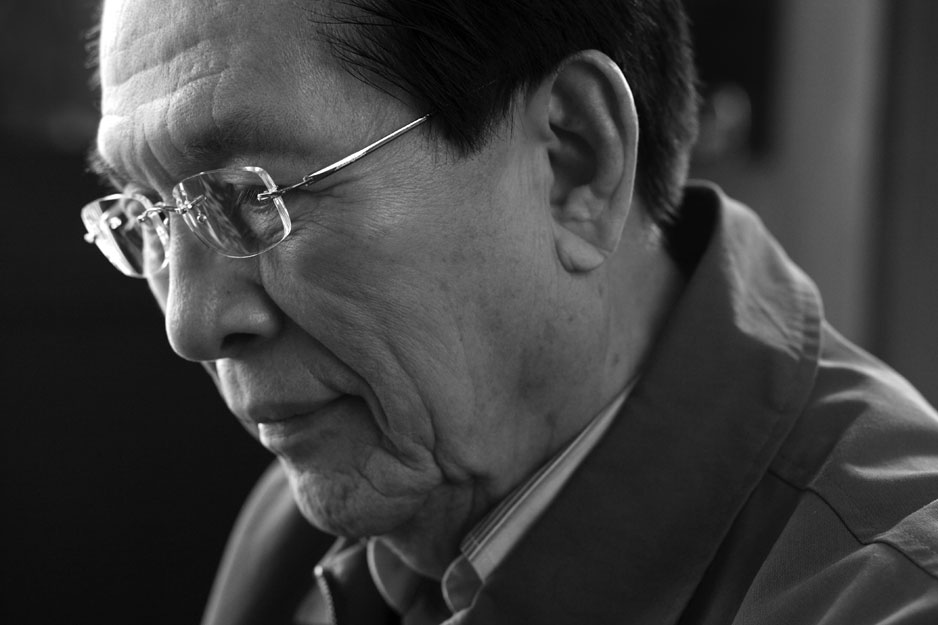





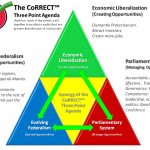

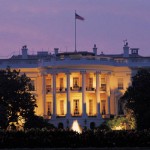
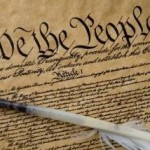
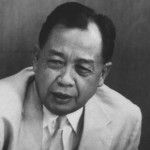
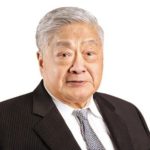



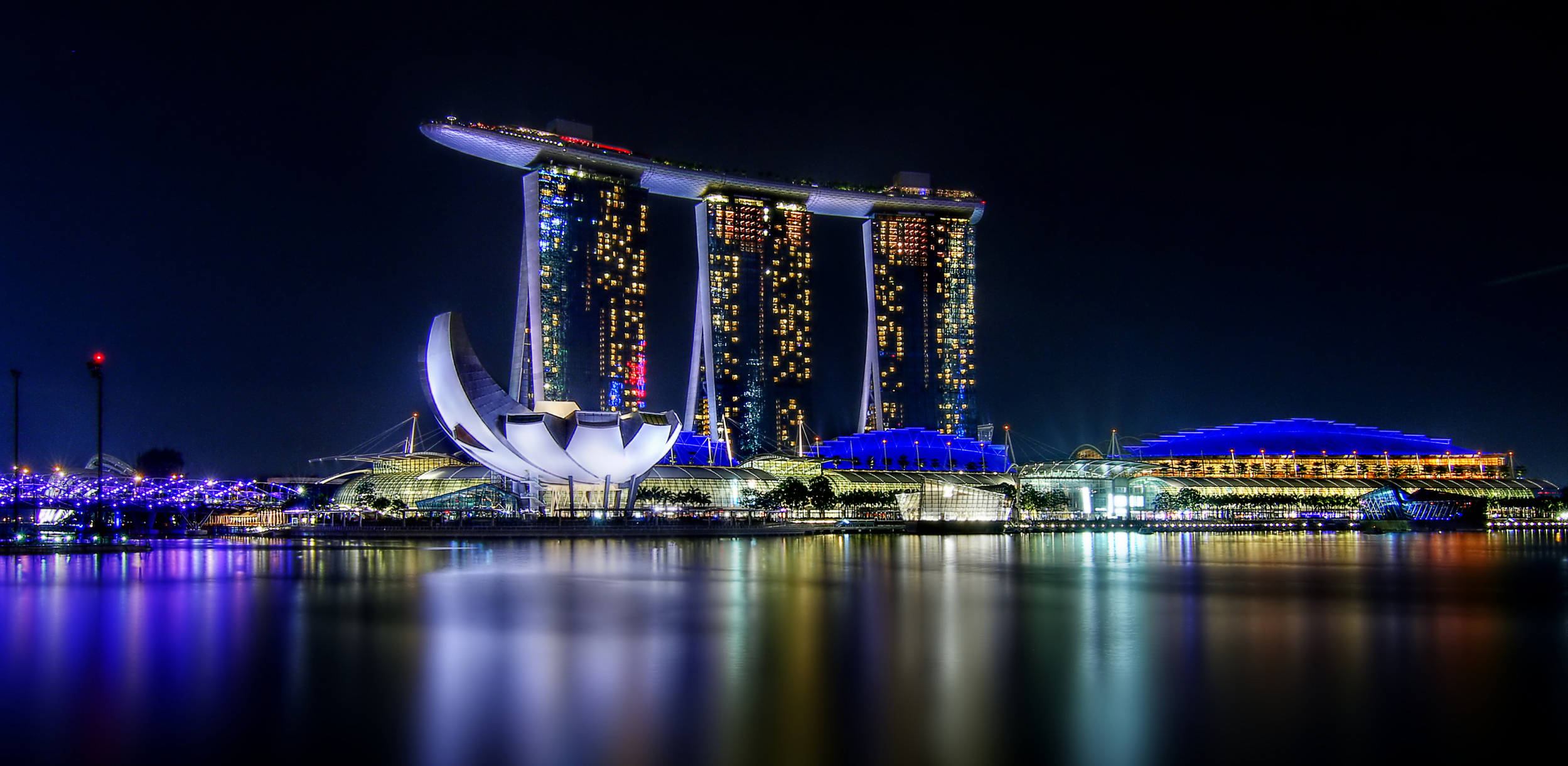
 I believe: This is a CoRRECT™ Video with a very positive message
I believe: This is a CoRRECT™ Video with a very positive message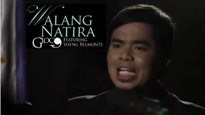 Walang Natira: Gloc-9's MTV Rap about the OFW Phenomenon
Walang Natira: Gloc-9's MTV Rap about the OFW Phenomenon